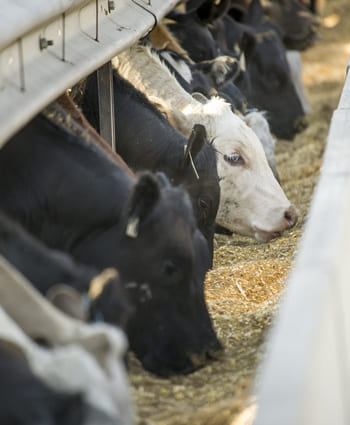
Cargill releases first Gold Standard-approved methane emissions reduction methodology for beef producers
By Food in Canada Staff
Sustainability Meat &Poultry Cargill Editor pick
Cargill partners with Trees Consulting to develop a Gold Standard-approved beef methodology that offers the global beef industry a framework for measuring methane emissions reduction using feed supplements that have been incorporated into beef cattle diets.
Gold Standard’s certification process allows climate and sustainable development initiatives to quantify, manage and maximize their impacts toward climate security, and requires verifiable impact toward three or more of the United Nation’s Sustainable Development Goals. It was established in 2003 by WWF and other international NGOs as a best practice standard to help the world progress toward net-zero emissions.
The new beef methodology defines a set of parameters that beef producers can adopt to quantify reductions in methane emissions, a greenhouse gas (GHG) that is derived from enteric fermentation (digestion process) in cattle through eructation (burping), as well as from manure handling. The new methodology is now available for beef producers worldwide to quantify, audit and verify methane reductions, enabling them to register their GHG mitigation project for Gold Standard certification.
Gold Standard’s Verified Emissions Reductions (VERs) can be traded in carbon markets, allowing credit purchasers to directly support the projects. These efforts can also be recognized in corporate value chains, whereby beef producers and food companies account for the reduction in supply chain GHG emissions, which contributes to their Scope 3 targets.
Although methane emissions from the enteric fermentation of cattle are a normal occurrence, Cargill recognizes there’s opportunity to reduce the intensity of methane, through its global animal nutrition business.
“We know that the industry is looking for more accurate tools to measure methane reduction,” said Joanne Sharpe, Cargill’s global ruminant sustainability lead. “As producers look at their current levels of production efficiency and work toward sustainability goals, we are committed to finding ways to ensure they can be recognized and rewarded for their efforts. As part of our methane reduction priorities, this methodology is a key step toward opening new possibilities to reduce GHG emissions in the beef supply chain.”
In practice, projects using the new methodology first establish a baseline for emissions during “business as usual” activities for a minimum of three continuous years. The cattle given feed supplements must be clearly identified and tracked over the course of the project. The project crediting period is set at five years, and can be renewed for an additional five years, excluding the baseline years.
Print this page